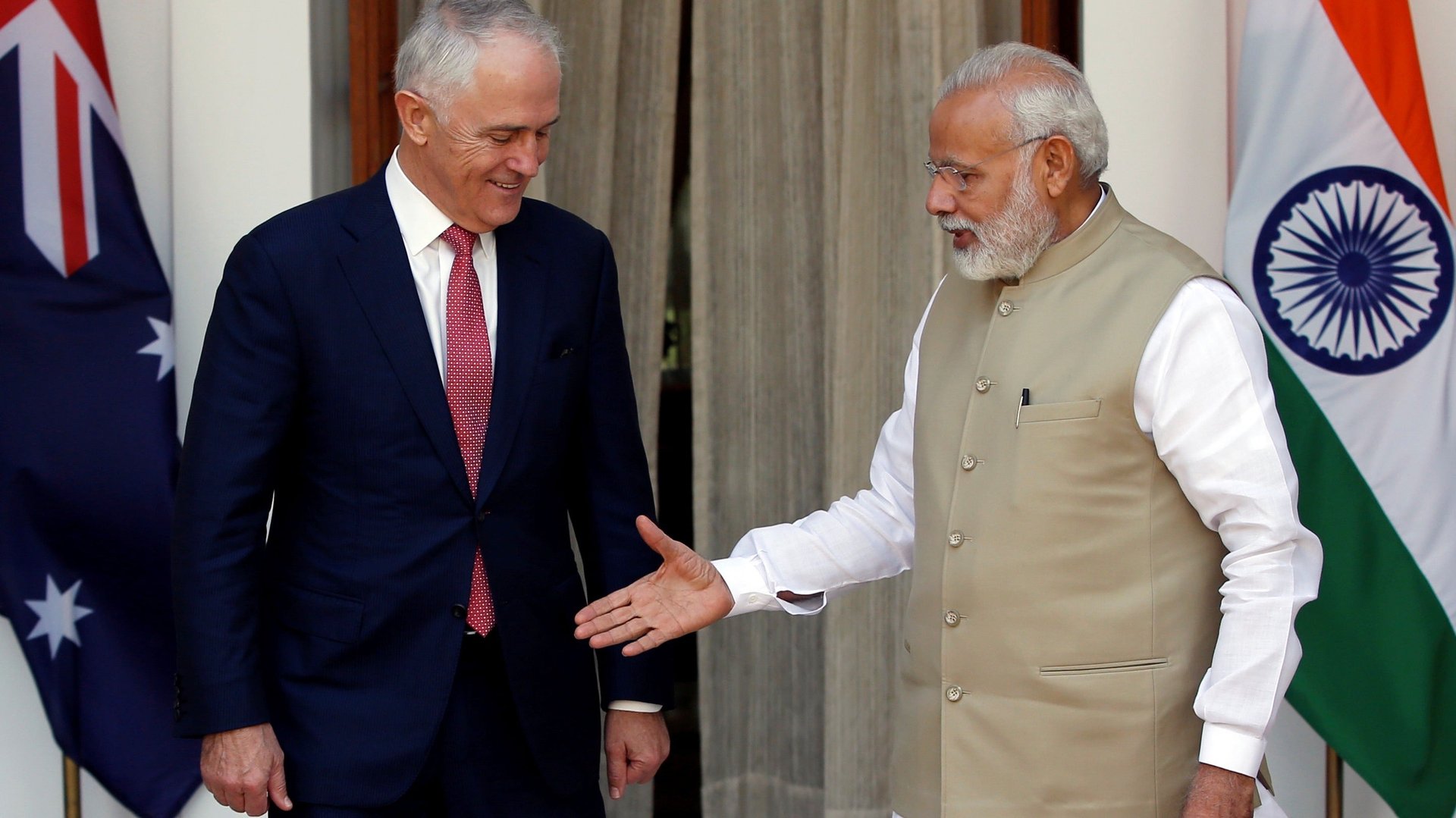Australia is scrapping its temporary worker visa, and Indians will lose out most
For Indians, doors of opportunities outside India are slamming shut.


For Indians, doors of opportunities outside India are slamming shut.
The UK, Canada, and the US—the three countries that account for the majority of India’s software export revenue—have upped the hurdles for Indians to gain work visas. The island nation of Singapore has reportedly started “shutting the tap” on Indian techies’ visas too. The latest nation to tighten restrictions is Australia.
Australia’s 457 visa, which let employers sponsor skilled foreign talent to work in Australia for up to four years, is being abolished, to be replaced by a new temporary visa. ”We’re putting jobs first. We’re putting Australians first,” prime minister Malcolm Turnbull announced in a Facebook video April 18 . “We will no longer allow 457 visas to be passports to jobs that could and should go to Australians.” Last year, the government had said it will cut down on the occupations outsiders can apply for under the visa.
The discontinuation of the 457 visa will likely have an outsized impact on Indian visa holders, who account for a quarter of the intake, according to ABC News. The UK and China account for 19.5% and 5.8%, respectively, of the foreign worker labor market in Australia. (The current 457 visa holders already in Australia—over 90,000 of them—will not be affected.)
New visa program
Turnbull recognizes that companies might need to allow in certain people to bridge a skills gap. To cater to those needs, the new temporary visa will be “specifically designed to recruit the best and the brightest in the national interest,” he said. The new program will have two streams: short term, which lasts two years, and medium-term, which will be awarded to address irreparable skills shortages and last four years. The new visa will likely require applicants to demonstrate previous work experience and higher English language proficiency.
To make sure that locals get a fair shake, Australia will also mandate labor market testing, Turnbull said. The criteria requires employers to first attempt to find an Australian citizen or permanent resident for a job role. They can recruit cross-border talent if a job cannot be filled locally. The government also plans to set up a training fund to better equip local workers for jobs that previously went to foreigners.
Part of the allure of the 457 visa has been the eventual prospect of acquiring citizenship. In a survey, more than 70% of the 457 visa holders said they planned to apply for permanent citizenship. As the visa allocations evolve, immigration might slow, too.
Tensions rise
As Australia has absorbed more Indian immigrants, tensions have risen. In 2009, attacks on Indian students in Melbourne fueled racist allegations. In 2016, a bus driver was set alight in a suspected hate crime. In March this year, a part-time student and part-time taxi driver of Indian-origin accused people of hurling racial slurs at him.
Recently, however, Indians have been less compelled to look beyond India for job opportunities given the country’s fast economic growth and its increased attractiveness for technology investments. Legacy institutes like the Indian Institute of Technology(IIT)-Bombay, and IIT-Madras had become hubs for nurturing talent at home, thanks to more funding and a research-driven approach to tech.
For those keen on working abroad, some countries still welcome Indians with open arms.